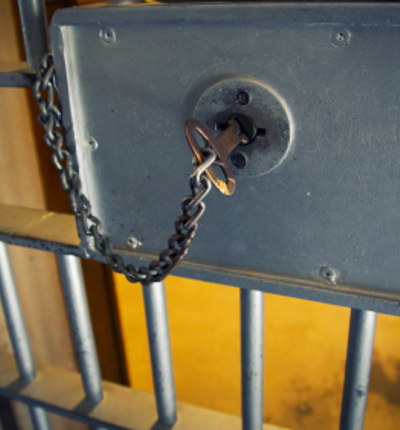
Profoundly deaf prisoner was denied sign language interpreter
A profoundly deaf former prisoner was denied a sign language interpreter during his one-year imprisonment.
Posted on 30 May 2024
Staff at HMP Lewes in East Sussex took the view that lip reading and writing would be enough for him to communicate with prison staff, medical staff and other prisoners while he was serving his sentence.
When he was taken to hospital for treatment for his cancer on two separate occasions, he was handcuffed to a prison officer with a short chain, which meant that he was unable to communicate using British Sign Language (BSL).
He was given a longer chain only after the consultant oncologist raised concerns directly with prison staff.
Now, the prisoner, known as Mr A, has settled a legal claim against the Ministry of Justice and Practice Plus Health and Rehabilitation Services, who denied liability for the unlawful discrimination claim, but later agreed to settle the claim brought against them.
Mr A, who is 64-years old, is pre-lingually and profoundly deaf and relies on BSL to effectively communicate.
He was remanded to HMP Lewes in August 2021. He was not provided with access to a BSL interpreter by prison or medical staff at the prison even though his communication needs were exacerbated in light of his cancer diagnosis.
Mr A raised his concerns with HMP Lewes to the best of his ability, but the prison took the view that he was able to communicate sufficiently through lip-reading and writing, and no BSL interpreter was made available. A BSL interpreter was also not made available for his appointments with the healthcare department at the prison.
As a result, he faced significant barriers understanding and taking part in prison life, as well as to follow and question medical professionals about his own health.
After approaching Leigh Day in October 2021, Mr A brought a claim for compensation against the Ministry of Justice and Practice Plus in December 2022, alleging that they had unlawfully discriminated against him under the Equality Act 2010 and violated his rights under articles 8 and 14 of the European Convention on Human Rights by failing to meet his deaf needs. After initially defending it, the claim has now been settled against both Defendants.
Mr A was represented by human rights partner Benjamin Burrows with trainee solicitor Ellie Sutherland in the prison team at Leigh Day, and Paul Clark, a barrister at Garden Court Chambers.
Benjamin Burrows said:
“It is commonly accepted that life in prison is going to be much harder on those who are deaf than for others. However, not providing a deaf prisoner with access to a BSL interpreter, when BSL is their first language, makes life almost impossible for them. This case shows that the needs of deaf people in prison are still being fundamentally misunderstood. I am pleased that we have been able to settle Mr A’s claim, but it is of considerable disappointment and concern that he had to resort to litigation in the first place.”
Mr A said:
“I am really pleased my claim has now settled, but I am not the only deaf person who has been denied access to a BSL interpreter while in prison. Deaf prisoners should be informed of their rights and supported to have their deaf needs met while in custody. Thank you to Leigh Day who have been fantastic throughout this process and very understanding of my needs as a deaf person.”

Forbury Gardens terror attack victims’ families call for urgent change after Judge Coroner says state agencies could have prevented deaths
The families of three men murdered in a terror attack at Forbury Gardens in Reading in June 2020 have called for urgent change after a Judge Coroner concluded that state agencies could have prevented their deaths.



